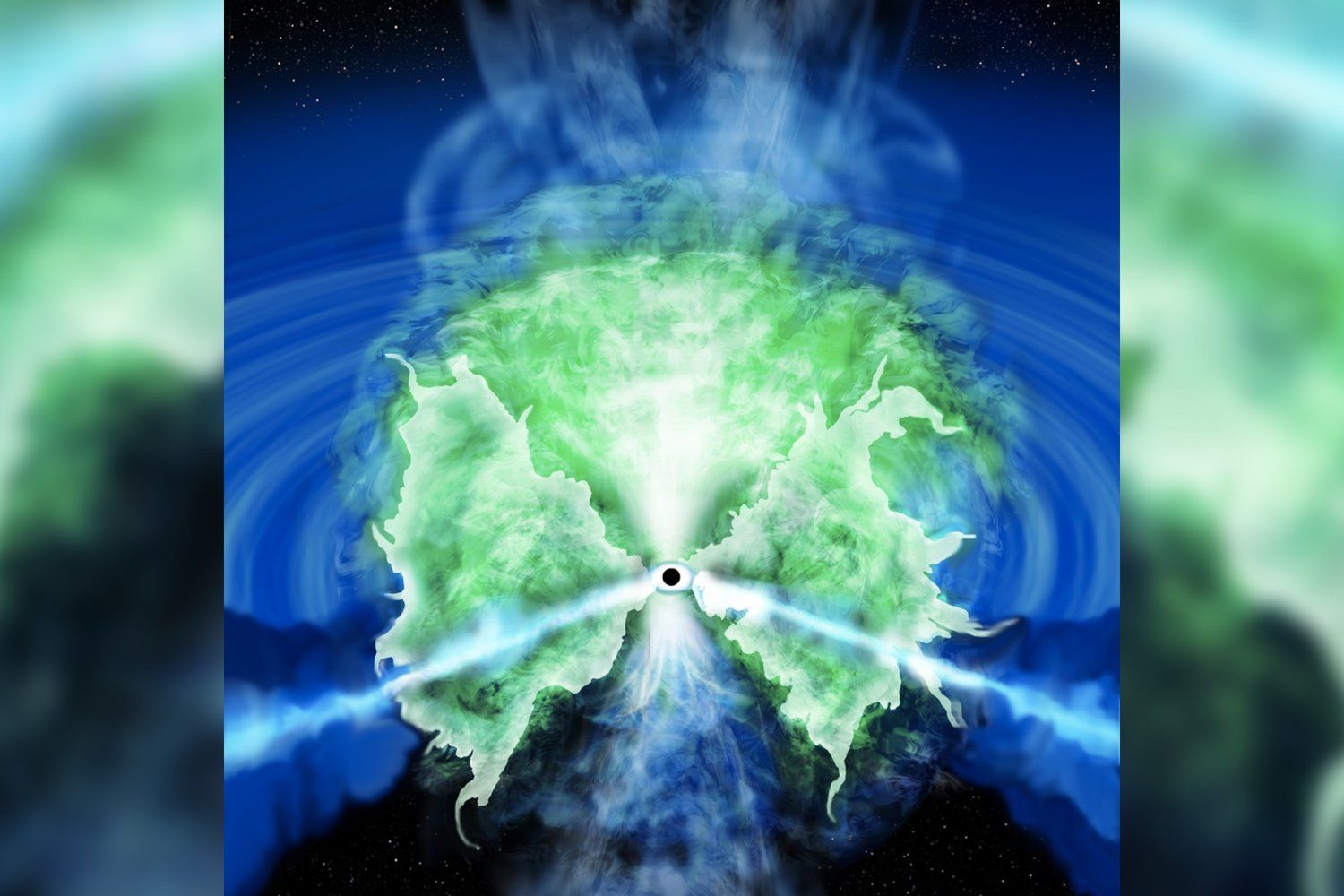There are churning, hellish, hot-and-cold gas storms swirling around our universe’s supermassive black holes. But the scientists who discovered them would prefer you call them “fountains.”
That’s a change from “donuts,” the term researchers previously used to describe the roiling masses. But a paper published Oct. 30 in The Astrophysical Journal reveals that the donut model of the mass around black holes may have been too simplistic.
About two decades ago, researchers noticed that the monster black holes at the centers of galaxies tended to be obscured by clouds of matter — matter that wasn’t falling into the black holes but rather circulating nearby. But astronomers couldn’t get a clear look at those clouds. They were able to simulate the currents around black holes, though, as in this example published in The Astrophysical Journal Letters in 2002, and they concluded that those clouds were donut-shaped — gas falling toward the black hole, getting heated up by proximity and bouncing away, only to fall back toward it again.[What’s That? Your Physics Questions Answered].
